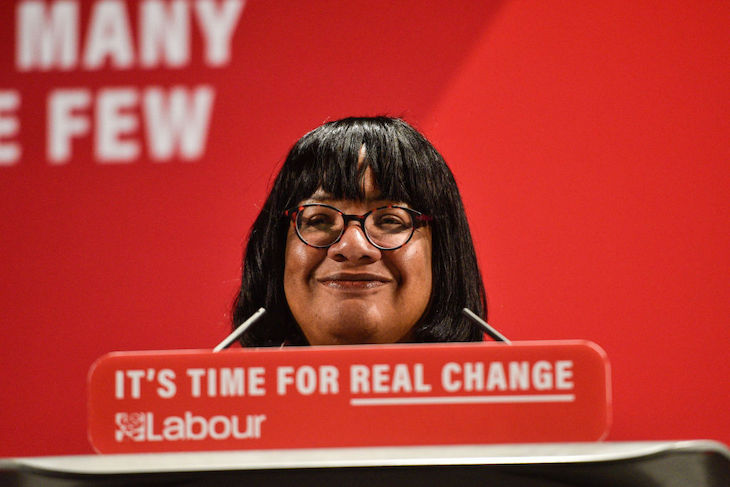Diane Abbott is a giant figure in the modern Labour party. As the first black woman ever to be elected to the House of Commons, and the longest serving black MP, she is an inspiration to black and brown communities – especially women – across the country. Abbott also wrote a crass and offensive letter to the Observer, in which she unfortunately, and utterly unsuccessfully, sought to distinguish racism from prejudice – in the process deeply offending the Jewish, Irish, and Gypsy, Roma, and Traveller (GRT) communities. For a life-long campaigner against racism, this was an especially egregious error.
It appears it is now impossible to accept a sincere apology
It was not only the reactions on social media that were swift. The Labour party suspended her from the Parliamentary Labour Party (PLP) – so she now sits as an independent MP – and started an investigation into the behaviour. Almost simultaneously, Abbott herself apologised effusively, saying:
‘I wish to wholly and unreservedly withdraw my remarks and disassociate myself from them. The errors arose in an initial draft being sent. But there is no excuse, and I wish to apologise for any anguish caused. Racism takes many forms, and it is completely undeniable that Jewish people have suffered its monstrous effects, as have Irish people, Travellers and many others. Once again, I would likely to apologise publicly for the remarks and any distress caused as a result of them.’
The letter was a challenge for the Labour party, which under Keir Starmer’s leadership has promised to tear out anti-semitism by the roots – and they have acted under the party’s disciplinary processes. But it is also a challenge to all of us who take part in public political debate: why do we find it so hard to accept an apology? And we do. Outrage at Abbott’s apology has been, if anything, greater than that about her original crass letter.
It appears it is now impossible to accept a sincere apology. That poses a genuine problem. Friday saw the unapologetic resignation of Dominic Raab as deputy prime minister, blaming everyone but himself for unacceptable behaviour documented at length in the report by Adam Tolley KC. How different would Raab’s career have been if he had said: ‘Sorry, that’s not how I meant it!’ the first time a senior civil servant had questioned his behaviour? Public figures, like the rest of us, aren’t perfect. They make mistakes, they get angry, they slip up. Surely saying sorry quickly and learning from their mistakes is what we want?
Instead, political errors generate hours of discussion on TV, radio, newspaper websites, and social media. It is the nature of media that is no longer constrained by bandwidth that more commentary can always be accommodated, but what are we doing to ourselves by being in a state of continuous outrage? It doesn’t help us, we’re not healing any hurt, we’re just playing our part in the ‘attention economy’ – either creating or following the clickbait that helps generates media revenues.
In the case of Abbott’s letter, the responses broadly fall into four categories. A lot of people believing that she had let herself down, but was genuinely sorry. But the majority identifying some bad faith, of one type or another: questioning the sincerity of the apology; arguing that the original letter revealed a truth about what Abbott truly felt; or, asserting this revealed something about the whole of the Labour party.
But the truth is that the drumbeat behind the criticism has been one that is far too familiar for Abbott – it has been a white, male relief that at last they can they say out loud what they always thought about her. We know from other female politicians the level of violent and misogynistic abuse they routinely receive. We know, or at least we should know, how much worse it is for black or brown women who receive all that and racist abuse too.
It is a harsh world where there is no understanding, just condemnation. If we want better behaviour and higher standards in public life, then we all need to start forgiving a lot more.







Comments